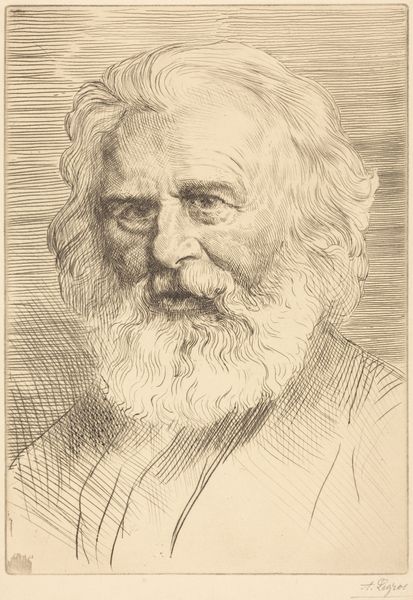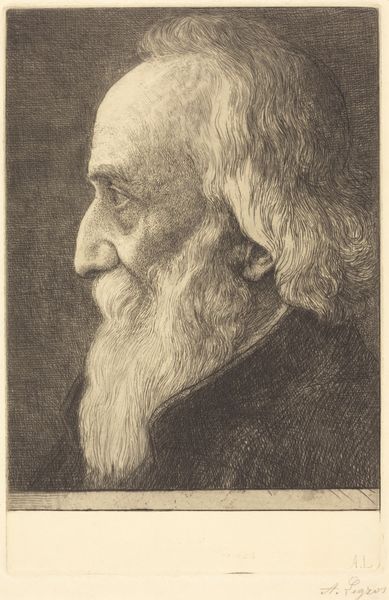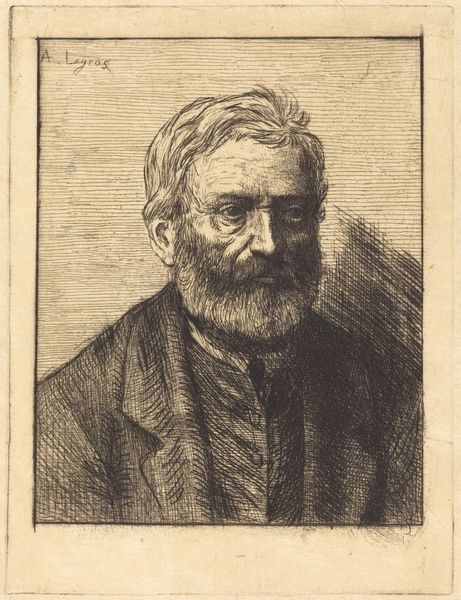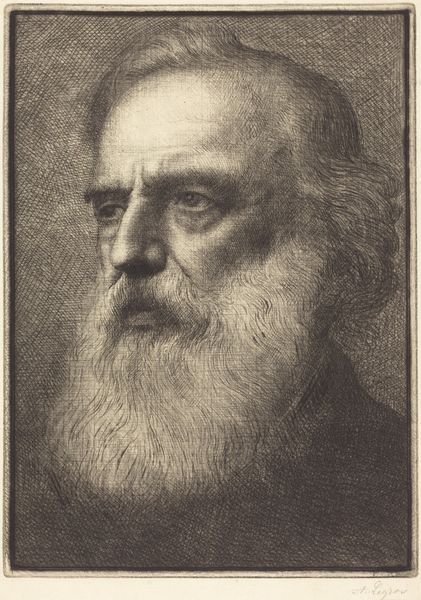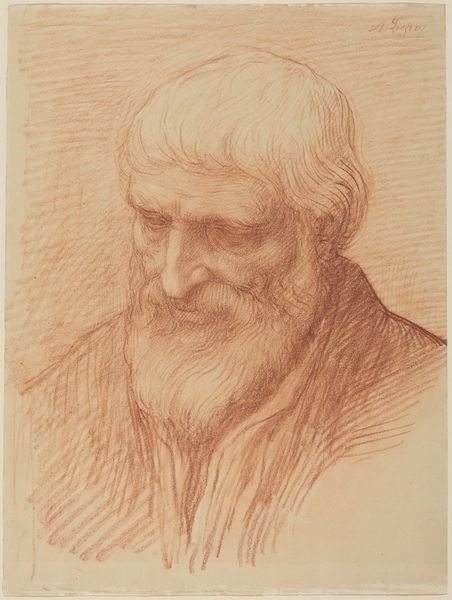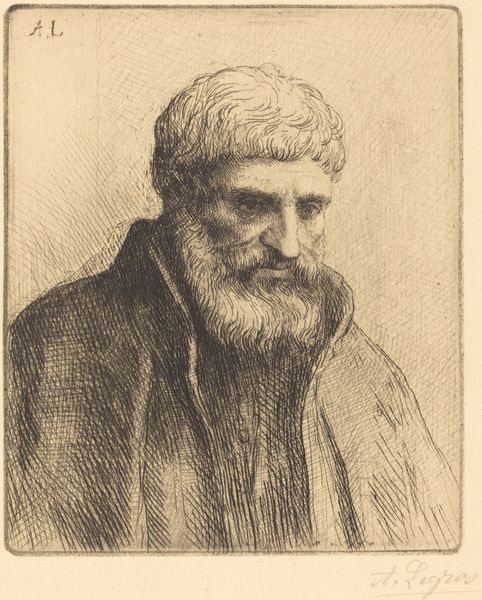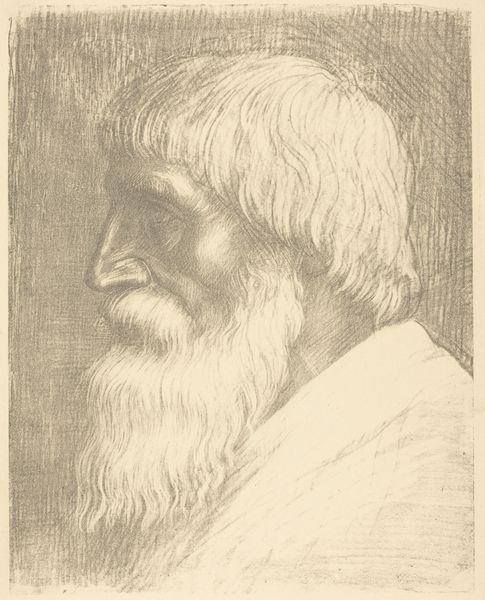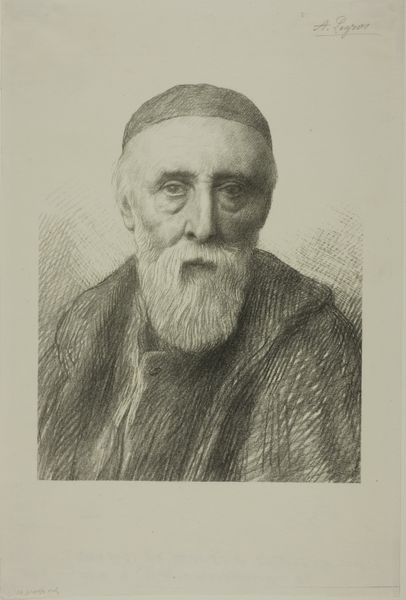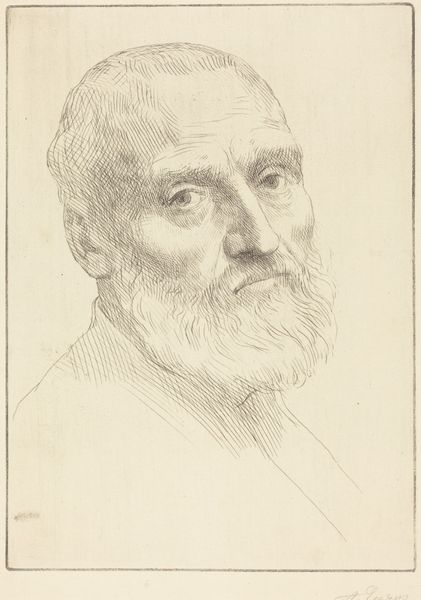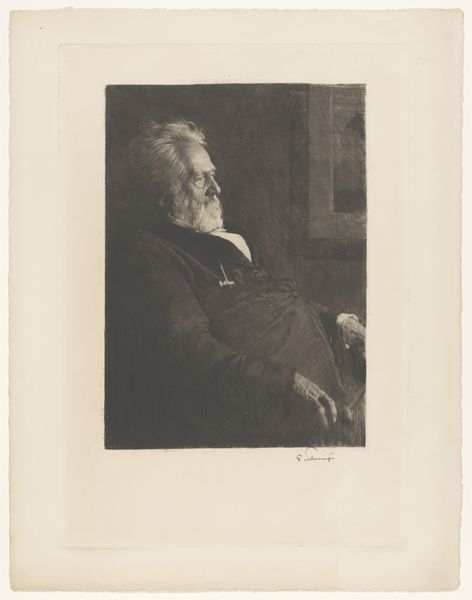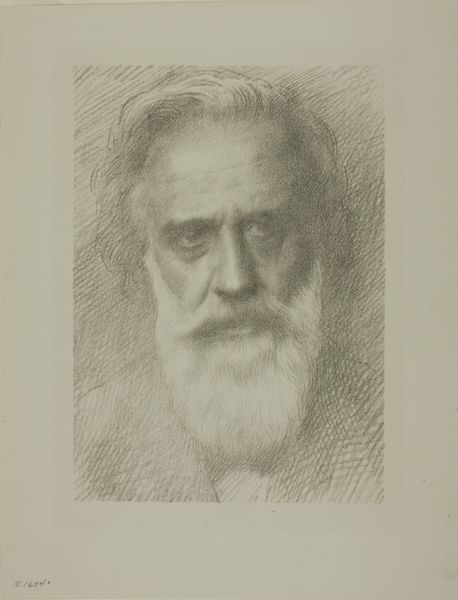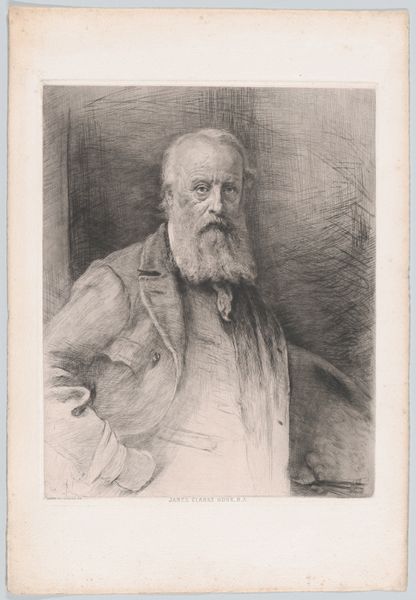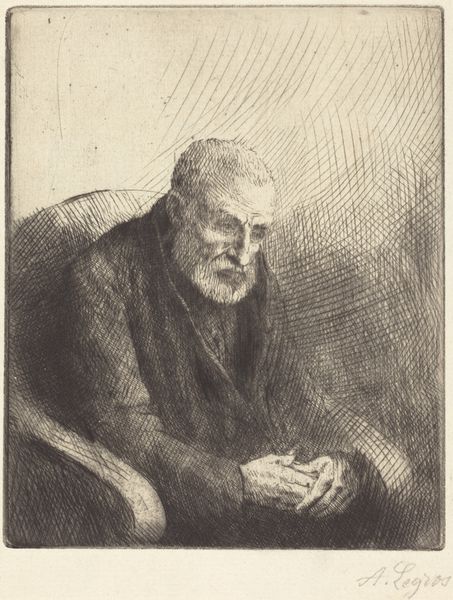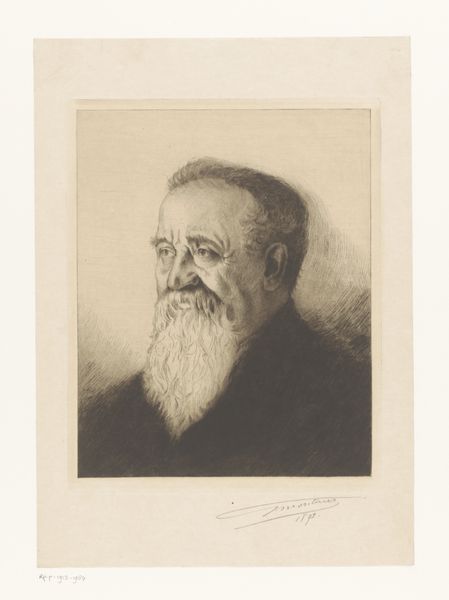
drawing, print, graphite
#
portrait
#
drawing
# print
#
graphite
#
portrait drawing
#
realism
Copyright: National Gallery of Art: CC0 1.0
Editor: So this is "Victor Hugo, 2nd plate" by Alphonse Legros, rendered in graphite as a print. It has such an intensely crosshatched texture. I am fascinated by the medium; what strikes you most about this portrait? Curator: Immediately, I consider the printmaking process itself. Legros, in using graphite and printmaking, engages in a form of artistic production that democratizes the image. The act of reproduction inherently disrupts the aura of the original, unique artwork. How might the materials employed, such as the relatively inexpensive graphite and the reproducible print, challenge established notions of artistic value and accessibility? Editor: That’s a great point! It allows for wider consumption of Hugo's image. Do you think the texture caused by the hatching has significance, in terms of materiality and labor? Curator: Absolutely. The crosshatching technique, repeated labor, shows us not just an image of Hugo, but it shows a process of making. Consider the time and effort that goes into creating such a textured image, layer upon layer. Legros invites the viewer to consider the labor behind the artwork itself, demystifying the artistic process. It bridges the gap between the "high art" of portraiture and the "low art" of craft and reproduction. Editor: So it is not just the end result of the drawing of Hugo that we are to appreciate, but also the work of reproducing it that matters as well. I never considered art from that perspective! Curator: Precisely! By analyzing its materials and the process behind the art, we come to see the historical context, the labor invested, and the disruption to artistic value the work represents. Editor: Thank you. Thinking about art as an extension of production helps me look at artworks with an extended historical awareness.
Comments
No comments
Be the first to comment and join the conversation on the ultimate creative platform.
